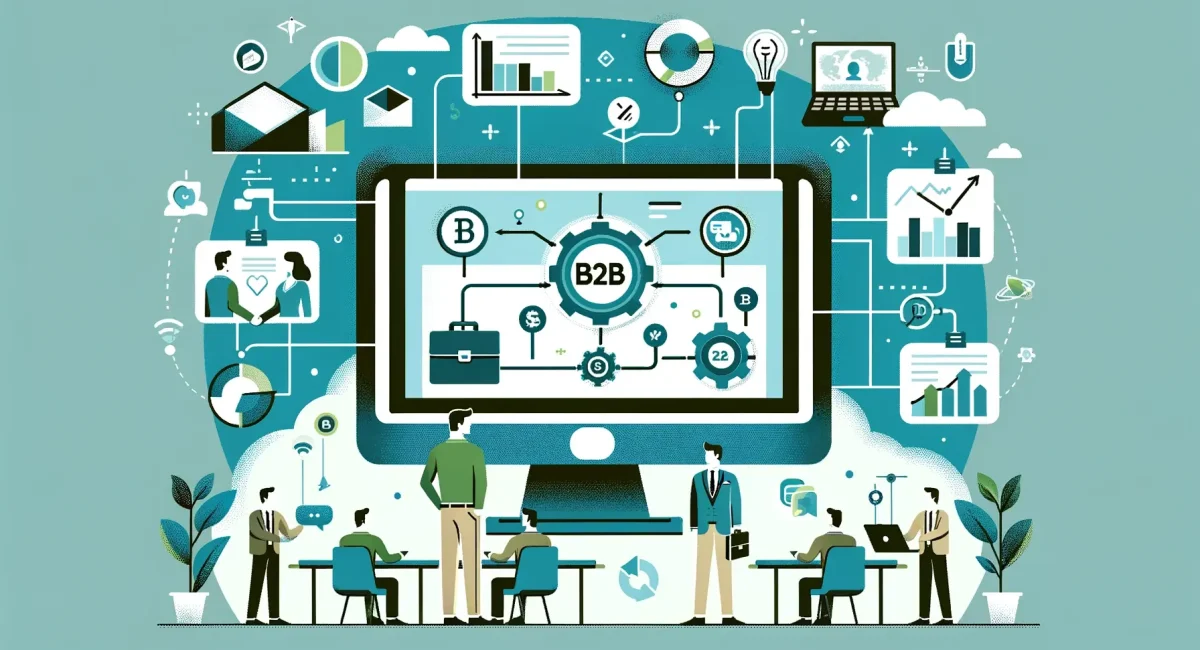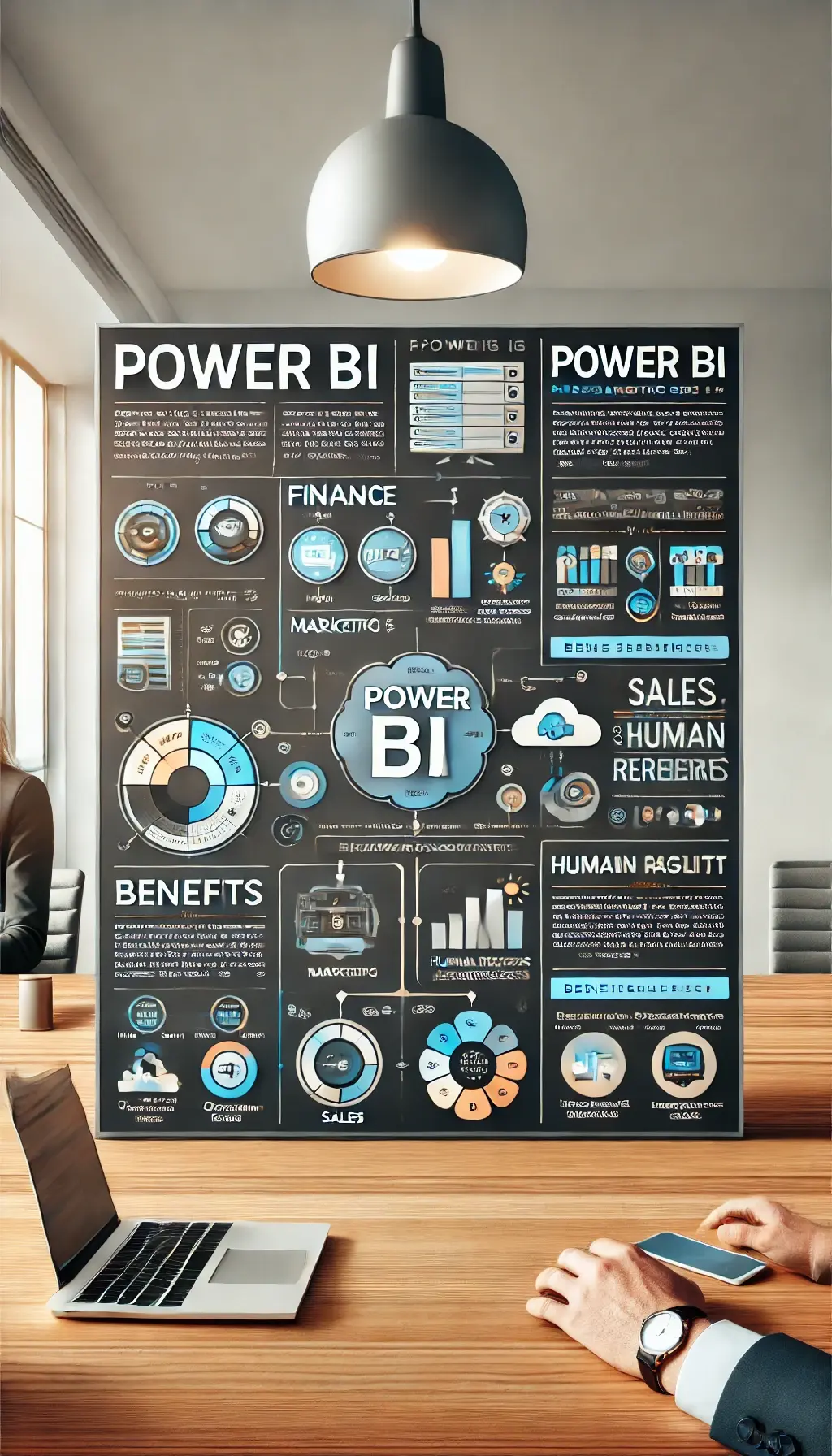What is B2B marketing? In the dynamic realm of business, marketing serves as the engine of growth and connectivity, bridging companies with their clientele. Among the varied marketing domains, Business-to-Business (B2B) marketing emerges as a specialized field, distinguished by its focus, strategies, and objectives. This article explores the essence of B2B marketing, contrasts it with Business-to-Consumer (B2C) marketing, delves into contemporary trends, and outlines effective branding strategies. Furthermore, it examines the pivotal role of marketing agencies in sculpting a robust B2B marketing framework.
Definition of B2B Marketing
B2B marketing refers to the strategic approach adopted by companies that sell products or services to other businesses or organizations, rather than directly to consumers. This model emphasizes the creation of value, the establishment of long-term relationships, and the understanding of complex buying processes. In essence, B2B marketing targets the needs, interests, and challenges of individuals who make purchases on behalf of, or for, their organization, thereby involving more rational and need-based decision-making processes.
Differences Between B2B and B2C Marketing
Differences Between B2B and B2C Marketing While both B2B and B2C marketing aim to connect with their target audience, they diverge significantly in their approaches and tactics due to the inherent differences in their audiences and sales cycles:
- Audience and Decision-Making: B2B marketing targets organizational buyers, often involving multiple stakeholders in the decision-making process, whereas B2C marketing focuses on individual consumers, leading to more straightforward decision-making. The target group in B2B is usually defined by job roles and industries, while in B2C, it’s defined by personal interests, demographics, and behaviors.
- Relationships and Sales Cycles: B2B relationships are long-term and rely heavily on personal relationships, complex negotiations, and considerable after-sales support. Conversely, B2C transactions are typically shorter, less personal, and more transactional in nature. The number of People Involved in a B2B purchase decision can be large, as decisions often require approval from different levels of an organization, while in B2C, the decision might be made by the individual or a small unit like a family.
- Content and Messaging: B2B marketing content is informative and detailed, addressing the business’s needs, ROI, and product specifications. B2C content is more likely to focus on emotional appeal and brand engagement. The Product/Service complexity in B2B is usually higher, necessitating more detailed and technical content, while B2C products/services are often simpler and showcased through lifestyle imagery and emotional storytelling.
- Price Consideration: Pricing strategies also differ significantly between B2B and B2C. In B2B, prices are often negotiable and tailored to the size of the deal or partnership, reflecting the custom nature of many B2B solutions. Price negotiations and contracts in B2B can be complex, considering the larger sums of money and long-term commitments involved. In contrast, B2C pricing is usually fixed and prominently displayed, with promotions and discounts used to incentivize quick purchasing decisions.
These distinctions illustrate the nuanced approach required in B2B marketing, focusing on relationship building, detailed content, and understanding the organizational buying process, compared to the more direct and personal appeal in B2C marketing.
Latest Trends in B2B Marketing
In the swiftly evolving landscape of business marketing, the capacity to adapt and innovate determines a brand’s market relevance and success. For B2B organizations, this means not only understanding their unique marketplace but also anticipating shifts in technology, strategy, and buyer values. To build effective B2B campaigns, staying abreast of emerging trends is not just advantageous; it’s essential. Below are key trends reshaping B2B marketing strategies, demanding attention and integration into marketing plans.
- Digital Transformation: The adoption of digital channels, tools, and platforms for lead generation, customer engagement, and personalization has become paramount. Digital transformation goes beyond mere online presence; it involves leveraging analytics for better customer insights, automating marketing processes for efficiency, and utilizing AI for enhanced customer experiences. This shift not only streamlines operations but also opens up new avenues for engagement and data-driven decision-making, making it crucial for B2B marketers to invest in digital technologies and platforms that meet their audience where they are: online.
- Account-Based Marketing (ABM): ABM represents a strategic pivot from broad-based marketing approaches to highly targeted and personalized strategies. By focusing on key accounts as markets in their own right, B2B marketers can tailor their efforts to the specific needs, challenges, and characteristics of each account, fostering deeper relationships and improving sales outcomes. This personalized approach requires a thorough understanding of target accounts, enabling marketers to deliver customized messages and solutions through the most effective channels. ABM’s precision and personalized nature make it a powerful strategy in the B2B arsenal, promising higher conversion rates and ROI.
- Content Marketing and Thought Leadership: Establishing a brand as a thought leader through the production of high-quality, relevant content is more crucial than ever. Content marketing in the B2B sector is not just about generating leads; it’s about creating value, building trust, and establishing your brand as the go-to source for insights and solutions in your industry. This approach requires a sustained commitment to delivering insightful, informative, and useful content that addresses the evolving needs and pain points of your target audience. By doing so, B2B marketers can enhance brand perception, foster loyalty, and support the buying process from awareness to decision-making.
- Sustainability and Corporate Responsibility: Today’s businesses are increasingly evaluated not just on their products or services, but also on their impact on society and the environment. Integrating sustainable practices and corporate social responsibility (CSR) into brand messaging reflects a commitment to ethical operations and aligns with the values of modern businesses and decision-makers. This trend is particularly relevant in B2B marketing, where decisions often involve considerations beyond price and functionality, including company values and social responsibility. Emphasizing sustainability can differentiate a brand, build deeper connections, and drive long-term partnerships in a competitive market.
These trends underscore the evolving nature of B2B marketing, where digital readiness, personalized engagement, value-driven content, and ethical business practices are becoming critical for success. Adapting to these trends enables B2B marketers to not only meet the current demands of their target audience but also position their brands for future growth in an increasingly complex and competitive landscape.
Best B2B Branding Strategies
In the world of B2B marketing, a strong, distinctive brand is a cornerstone of success. As markets become increasingly crowded and competitive, the ability to stand out and resonate with your target audience is more crucial than ever. This necessitates not only a deep understanding of your market and customers but also the implementation of branding strategies that can endure and adapt over time. Successful B2B branding goes beyond logos and taglines; it’s about creating a consistent, value-driven narrative that engages your target audience at every touchpoint. Here, we look into proven B2B branding strategies that have demonstrated their effectiveness and resilience in the ever-evolving business landscape.
- Developing a Strong Value Proposition: The cornerstone of any successful B2B brand is a clear and compelling value proposition. This statement should succinctly articulate the unique benefits that your products or services offer, addressing specific business needs or challenges faced by your customers. A strong value proposition distinguishes your brand in the marketplace, providing a clear reason for customers to choose you over competitors. It serves as the foundation for all marketing communications, ensuring that your brand’s core message is consistently conveyed and understood.
- Consistency in Brand Messaging: Maintaining consistency in brand messaging across all platforms and touchpoints reinforces your brand identity and helps build recognition and trust with your audience. This consistency should permeate every aspect of your marketing, from your website and social media profiles to your advertising and sales materials. Consistent messaging ensures that your brand is immediately recognizable, fostering a sense of familiarity and reliability that can significantly influence buying decisions in the B2B sector.
- Customer-centricity: At the heart of effective B2B branding is a deep commitment to customer-centricity. This strategy involves placing the customer’s needs, challenges, and preferences at the center of your marketing efforts, tailoring your offerings and communications to meet their specific requirements. By demonstrating a genuine understanding and anticipation of customer needs, B2B brands can foster stronger relationships, enhance customer loyalty, and create more value for their clients. Customer-centric branding requires continuous engagement and feedback mechanisms to ensure that your brand remains relevant and responsive to your audience’s evolving needs.
- Leveraging Customer Testimonials and Case Studies: Authentic customer testimonials and detailed case studies are powerful tools for building credibility and trust in the B2B space. These real-world success stories provide tangible evidence of your brand’s ability to deliver on its promises, showcasing the impact of your products or services on businesses similar to your prospects. By highlighting specific challenges, solutions, and outcomes, customer testimonials and case studies can effectively convey the value proposition and benefits of working with your brand, making them indispensable components of a successful B2B branding strategy.
Implementing these time-tested B2B branding strategies can significantly enhance a brand’s visibility, credibility, and appeal in its target market. By articulating a clear value proposition, maintaining consistent messaging, prioritizing customer needs, and showcasing real-world success, B2B brands can establish a strong, enduring presence that resonates with their audience and drives long-term success.
The Role of Marketing Agencies in B2B Marketing
Marketing agencies play a critical role in enhancing and executing B2B marketing strategies. They bring expertise, resources, and fresh perspectives that can significantly improve marketing outcomes. Agencies can offer specialized services such as market research, digital marketing, ABM, and content creation, tailored to the B2B context. By partnering with a marketing agency, businesses can tap into advanced tools, analytics, and strategies to drive their marketing efforts forward, ensuring they remain competitive and resonant with their target audience.
Conclusion
B2B marketing stands as a cornerstone of the modern business landscape, requiring a nuanced understanding of the market, a focus on relationship-building, and an adherence to evolving trends. By differentiating itself from B2C marketing through audience, decision-making processes, and sales cycles, B2B marketing demands a unique set of strategies and approaches. Staying ahead in this field means leveraging digital trends, adopting effective branding strategies, and considering the integration of a marketing agency as a strategic partner. As businesses navigate the complexities of B2B marketing, those who innovate and adapt will find themselves at the forefront, driving growth and fostering meaningful business relationships.





